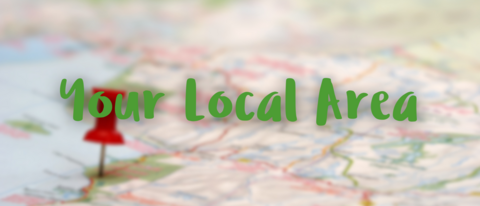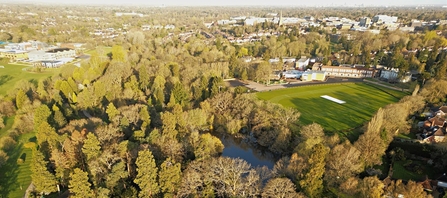
Who is your MP?
An MP is a Member of Parliament who is elected to act on behalf of people who live in a particular area, known as a constituency. They represent the interests and concerns of those people, known as constituents, in the House of Commons. Also, they consider and propose new laws, ask parliamentary questions to relevant departments and ministers, attend functions and events, and hold a 'surgery' for constituents to attend to raise any matters.
As a result, MPs split their time between working in their constituency, for their political party, and attending Parliament.
To find out who your local MP is and see their contact details, you can use this tool to enter your postcode and see who represents you:

Your Local Council(s) & How To Contact
A council is a group of representatives who are elected to govern and provide services in a local area. This can range from social care to waste collection, and there are different types of local councils which are responsible for different services. As some postcodes may have two-tiers of local authority such as a county council and a district/borough council, it is important to know which council to approach for your issue/campaign.
Read on to find out about the different types of councils and which council(s) are responsible in your local area.
County Council
A county council is responsible for services across the whole of a county. For example, Warwickshire County Council provide services and support for:
- Schools and education
- Roads and transport
- Waste and recycling
- Careers
- Libraries and leisure
- Children and families
- Social care and health
- Council, democracy, and councillors
- Environment and planning
- Registrations
- Communities
- Businesses
District, Borough or City Councils
A district, borough, or city council covers a smaller area than a county council and provide services and support like:
- Council tax and benefits
- Bin collection and street cleansing
- Social housing provision
- Managing parks and recreation areas
Unitary Authorities
A unitary authority or unitary council replaces the ‘two-tier’ system of an area having a county and district council for a single tier of unitary authorities. Therefore, a unitary authority is responsible for all the services listed above and simplifies the process as there are less organisations involved. Coventry City Council and Birmingham City Council are examples of metropolitan district councils that are unitary authorities.
Parish, Community or Town Council
A parish, community or town council is the first level of local government and often operates below other district, borough, and unitary councils.
They help with local issues and focus on community wellbeing and local needs, such as:
- Allotments
- Public clocks
- Bus shelters
- Community centres
- Play areas and play equipment
- Grants to help local organisations
- Consultation on neighbourhood planning
And have the power to issue fixed penalty fines for:
- Litter
- Graffiti
- Fly posting
- Dog offences
How to Contact Your Local Council
Enter your postcode below to find out which council(s) provide services in your area:
Local councils provide different services so knowing which one is the correct one before contacting will reduce the time it takes to deal with your inquiry and stop it feeling like you are passed from one organisation to another.
Most councils have a range of methods to contact them such as a phone line, email address, online contact form, postal address, or in-person visit.

Information about your local area (constituency)
A constituency is a specific geographical area that is represented by one elected member of parliament (MP) in the House of Commons. The United Kingdom is divided into 650 parliamentary constituencies and recently the boundaries changed to make sure that each constituency is a similar size. A person living in an MP’s constituency is known as their constituent.
Want to dig down into the detail about your local area? Warwickshire Wildlife Trust have put together specific data about your area including surveys of constituents, concerns for wildlife, and how these relate to our five priorities for the government. You can use this for evidence to build your campaign and support when meeting key decision-makers.
Choose your constituency from the list below.
Map of your local area
Select your local area on the map below to find out about local green spaces and nature reserves as well as what campaigns are going on to get involved.
